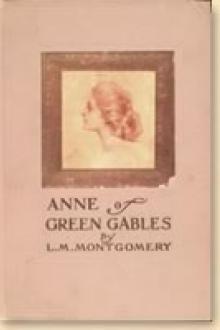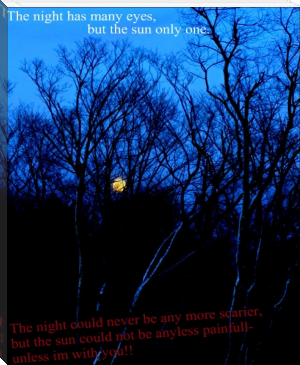A Room With A View, E. M. Forster [best mystery novels of all time txt] 📗

- Author: E. M. Forster
- Performer: -
Book online «A Room With A View, E. M. Forster [best mystery novels of all time txt] 📗». Author E. M. Forster
“Signorino, domani faremo—”
“Oh, bother that man!”
But Lucy remembered the vendor of photographs and said, “No, don’t be rude to him.” Then with a catching of her breath, she murmured: “Mr. Eager and Charlotte, dreadful frozen Charlotte. How cruel she would be to a man like that!”
“Look at the lights going over the bridge.”
“But this room reminds me of Charlotte. How horrible to grow old in Charlotte’s way! To think that evening at the rectory that she shouldn’t have heard your father was in the house. For she would have stopped me going in, and he was the only person alive who could have made me see sense. You couldn’t have made me. When I am very happy”—she kissed him—“I remember on how little it all hangs. If Charlotte had only known, she would have stopped me going in, and I should have gone to silly Greece, and become different for ever.”
“But she did know,” said George; “she did see my father, surely. He said so.”
“Oh, no, she didn’t see him. She was upstairs with old Mrs. Beebe, don’t you remember, and then went straight to the church. She said so.”
George was obstinate again. “My father,” said he, “saw her, and I prefer his word. He was dozing by the study fire, and he opened his eyes, and there was Miss Bartlett. A few minutes before you came in. She was turning to go as he woke up. He didn’t speak to her.”
Then they spoke of other things—the desultory talk of those who have been fighting to reach one another, and whose reward is to rest quietly in each other’s arms. It was long ere they returned to Miss Bartlett, but when they did her behaviour seemed more interesting. George, who disliked any darkness, said: “It’s clear that she knew. Then, why did she risk the meeting? She knew he was there, and yet she went to church.”
They tried to piece the thing together.
As they talked, an incredible solution came into Lucy’s mind. She rejected it, and said: “How like Charlotte to undo her work by a feeble muddle at the last moment.” But something in the dying evening, in the roar of the river, in their very embrace warned them that her words fell short of life, and George whispered: “Or did she mean it?”
“Mean what?”
“Signorino, domani faremo uno giro—”
Lucy bent forward and said with gentleness: “Lascia, prego, lascia. Siamo sposati.”
“Scusi tanto, signora,” he replied in tones as gentle and whipped up his horse.
“Buona sera—e grazie.”
“Niente.”
The cabman drove away singing.
“Mean what, George?”
He whispered: “Is it this? Is this possible? I’ll put a marvel to you. That your cousin has always hoped. That from the very first moment we met, she hoped, far down in her mind, that we should be like this—of course, very far down. That she fought us on the surface, and yet she hoped. I can’t explain her any other way. Can you? Look how she kept me alive in you all the summer; how she gave you no peace; how month after month she became more eccentric and unreliable. The sight of us haunted her—or she couldn’t have described us as she did to her friend. There are details—it burnt. I read the book afterwards. She is not frozen, Lucy, she is not withered up all through. She tore us apart twice, but in the rectory that evening she was given one more chance to make us happy. We can never make friends with her or thank her. But I do believe that, far down in her heart, far below all speech and behaviour, she is glad.”
“It is impossible,” murmured Lucy, and then, remembering the experiences of her own heart, she said: “No—it is just possible.”
Youth enwrapped them; the song of Phaethon announced passion requited, love attained. But they were conscious of a love more mysterious than this. The song died away; they heard the river, bearing down the snows of winter into the Mediterranean.





Comments (0)